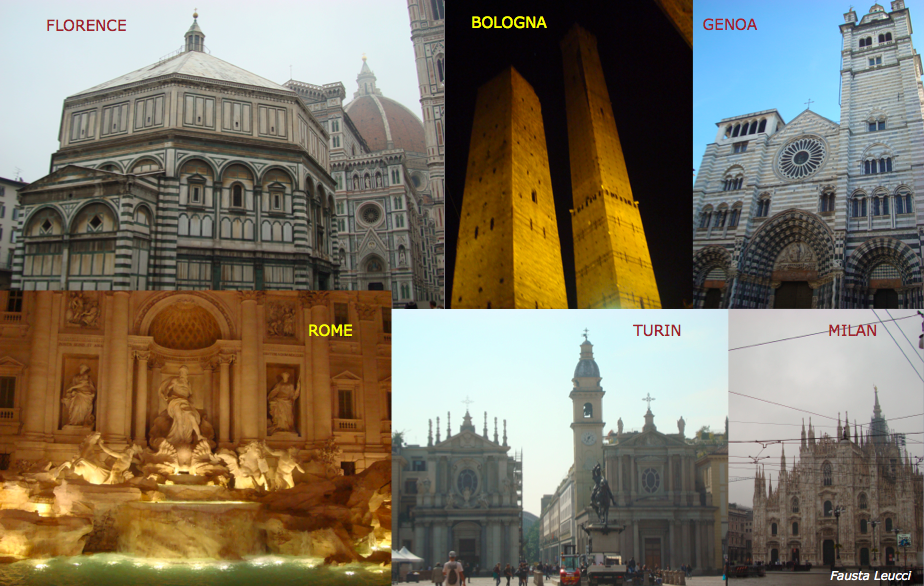


Since 2012, the ICity Rank report is drawn up annually by the company FPA. This is a ranking that concerns Italian smart cities and it is created to constantly update the evolution of urban centers in the path towards “smarter cities”, that is, towards cities that are closer to the needs of citizens and therefore more inclusive, more liveable, more capable of promoting their development by adapting to changes.
The FPA company is a services and consultancy company of the Digital360 Group, which is specialized in public relations, institutional communication, training and accompaniment towards organizational and technological change in public administrations and territorial systems.
In the “Icity Rank” report, FPA identifies and analyzes different areas of urban life, to describe and measure various aspects, which, summarized in “sector indices”, allow the calculation of a final index.
The year 2020 was a particular year, due to the pandemic, for this reason FPA concentrated its investigation exclusively on the digital transformation path of Italian cities and analyzed the performance of 107 Italian provincial capitals based on the following sectoral indicators (updated to 2020):
online accessibility of public services;
availability of apps of public utility;
adoption of digital platforms;
use of social media;
release of open data;
transparency and implementation of public wifi networks;
intelligent network technologies.
The digital transformation index, obtained from the arithmetic average of the aforementioned sectoral indicators, has made it possible to build the ranking of the most digital cities in Italy for 2020 (ICity Rank 2020).
On November 23, 2021, at FORUM PA Citta' (the most important national event dedicated to the modernization of the public administration), the FPA ICity Rank 2021 report was presented. In this report, again with reference to the digital transformation index, the new ranking of the most digital cities in Italy was provided. The data, still concerning the 107 Italian provincial capitals, confirm, for the second consecutive year, the city of Florence as the most digital capital of Italy for 2021, followed by Milan (second place) and Bologna (third place), with Roma Capitale, Modena and Bergamo on equal merit (in fourth place), while the cities of Turin, Trento, Cagliari and Parma close the top ten. It should be noted that:
Florence boasts excellent results especially in reference to performance in the fields of open data, wifi, IoT (Internet of Things), network technologies and municipal apps.
Milan highlights its strengths especially in the open data sector and online services.
Bologna shows good results in relation to IoT and network technologies.
In the reports Smart City Index EY 2020 sustainability and Smart City Index EY 2020 resilience, four “drivers”, considered fundamental in the path of a city towards the “smart city”, are taken into consideration; the four indicators are: sustainability, resilience, accessibility and inclusiveness. The reports involve 109 Italian provincial capitals and among these Trento stands out as the city with the most sustainable infrastructures, followed by Turin and Bologna. Instead, the most resilient city is Milan, followed by Venice and Turin.
It should be noted that, in order to be defined sustainable, a city must be able to:
guarantee safe and quality housing;
protect and enhance the landscape and cultural heritage;
ensure intelligent waste management;
guarantee citizens access to decisions regarding city planning and improvement;
encourage the use of non-polluting means of transport;
guarantee sharing mobility systems, in order to respect the environment by reducing CO2 levels in the city. In this regard, Florence is considered the queen city of bike-sharing; Reggio Emilia stands out for its numerous cycle infrastructures and Bologna is the city with the most bicycle parking spaces;
make sure that citizens have access to public means of transport integrated with other means, in the perspective of Mobility-as-a-Service (MaaS). MaaS is the new concept of mobility, it provides for the integration of different public and private transport services, which can be used by the user through a single digital channel. Everything works through digital intermediation platforms, which have the task of enabling all functions necessary to provide a personalized response to the different needs of mobility, such as: information, programming, travel booking and unified payment of services. In Italy, the most advanced city in this sector is Milan.